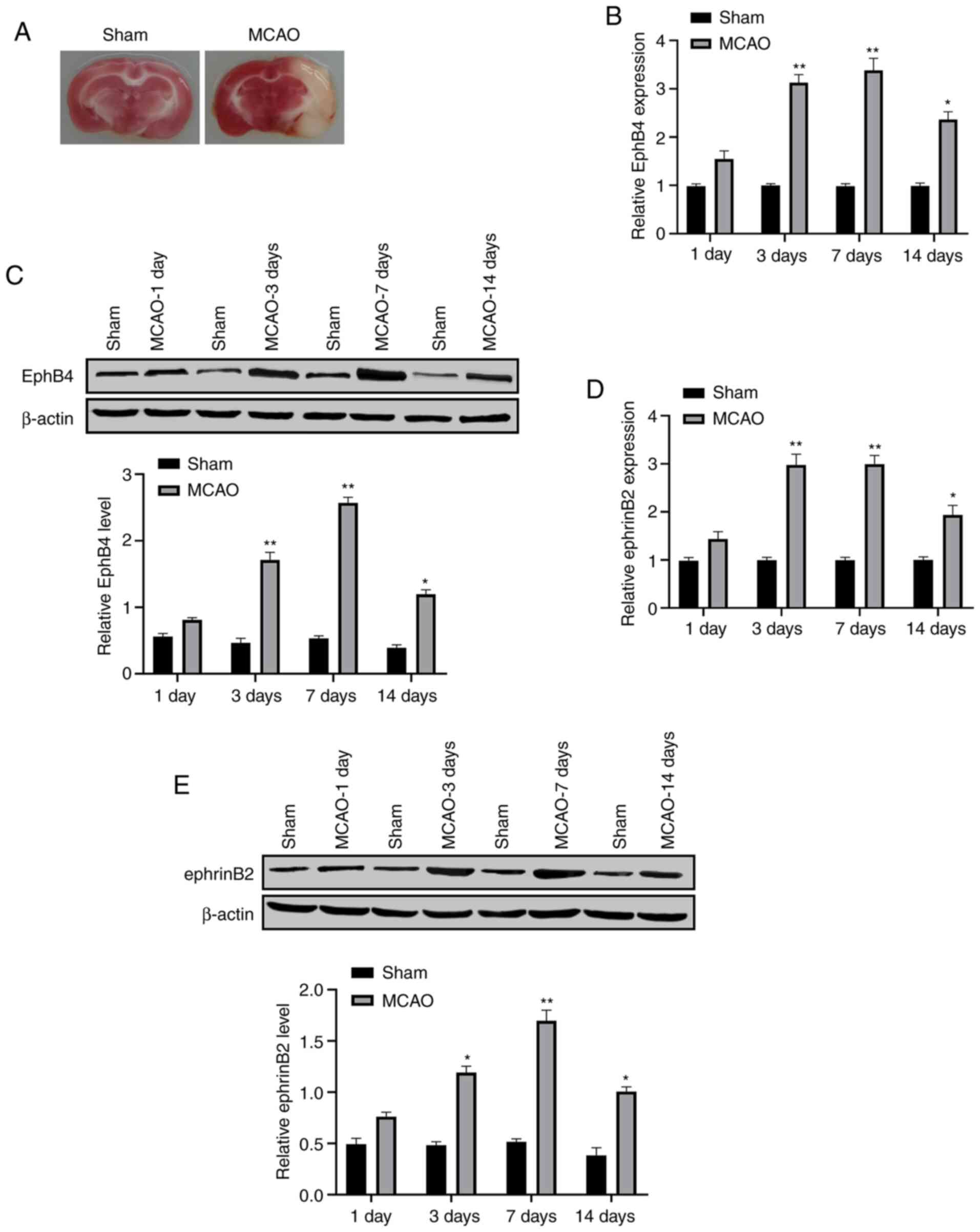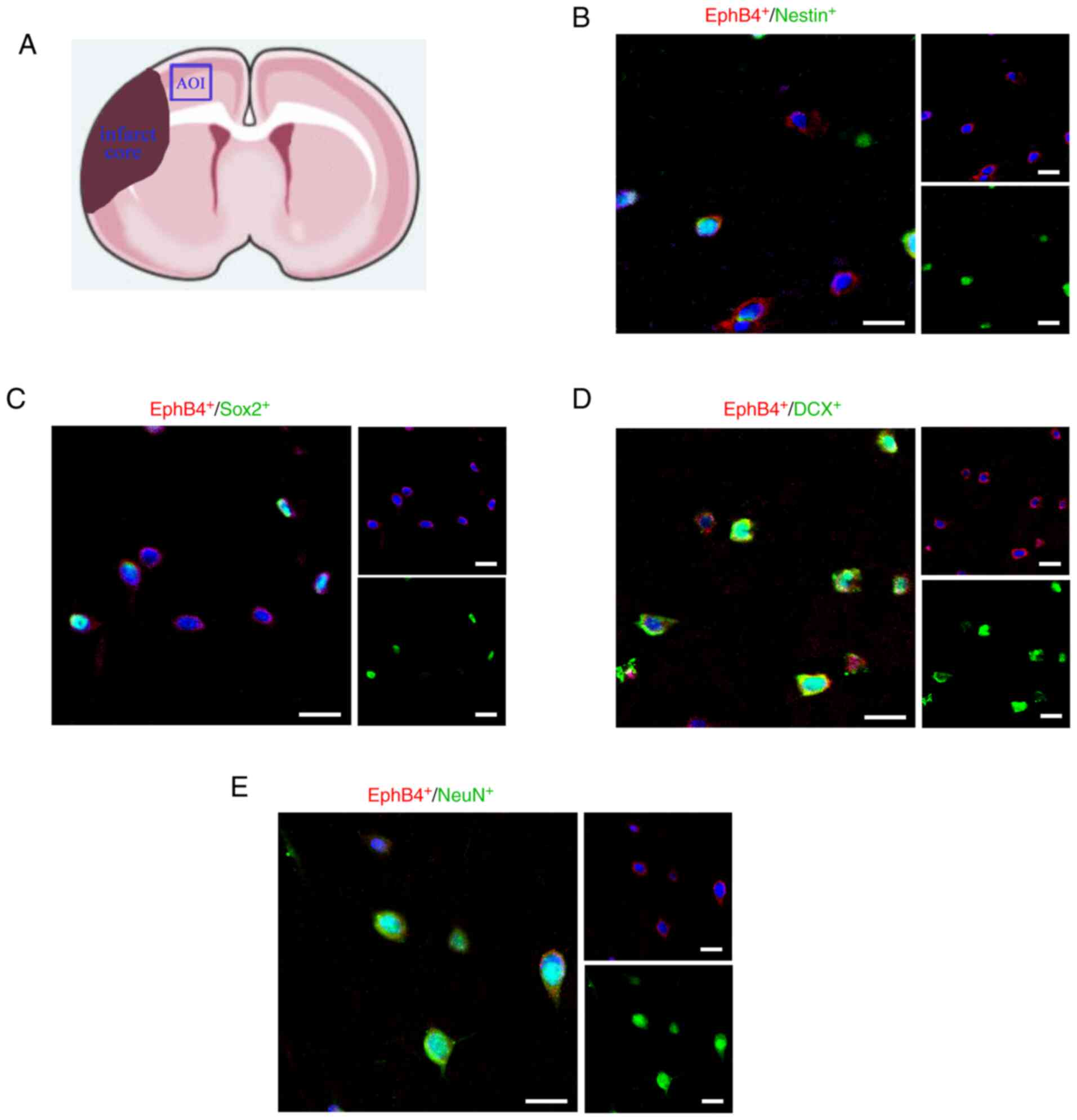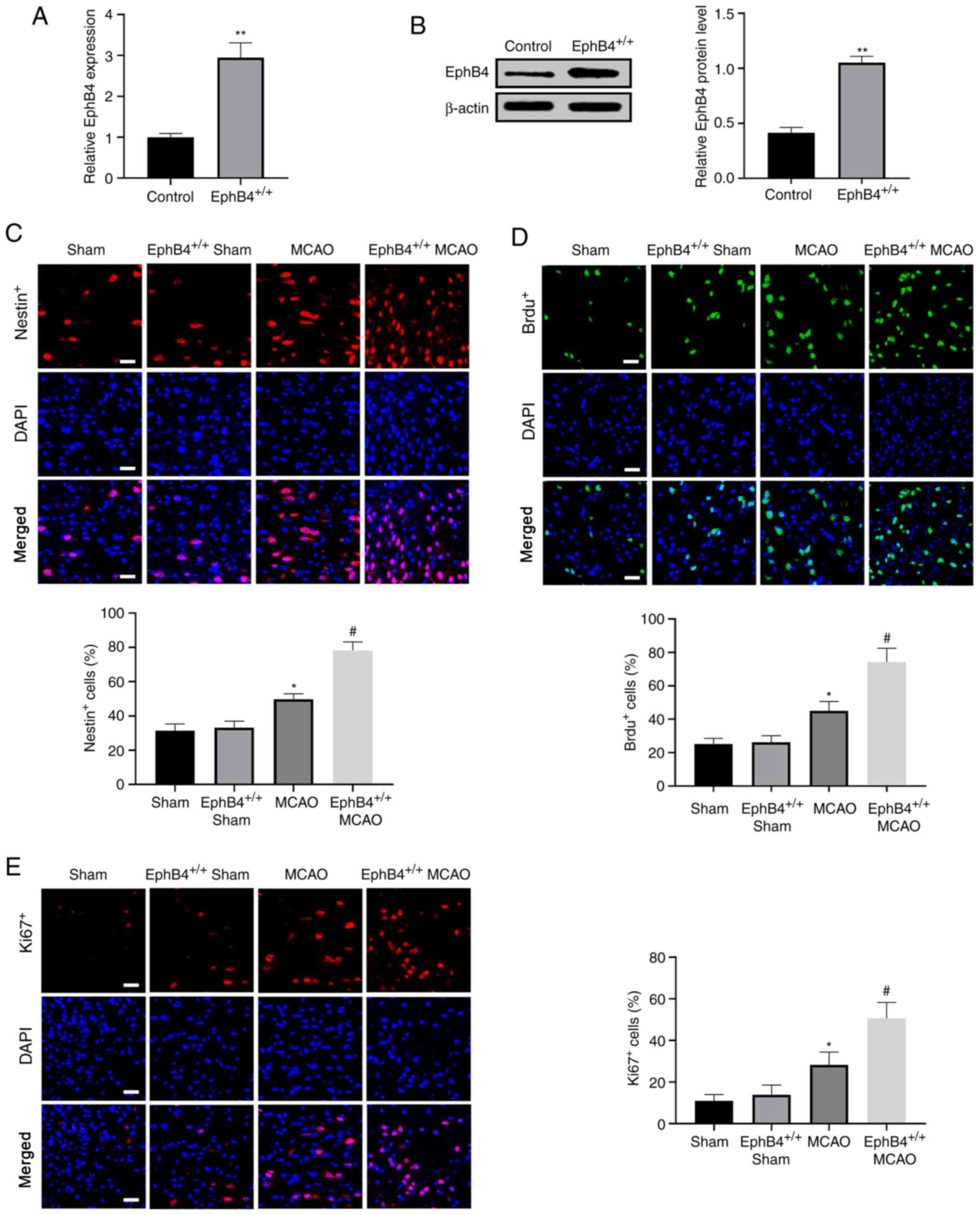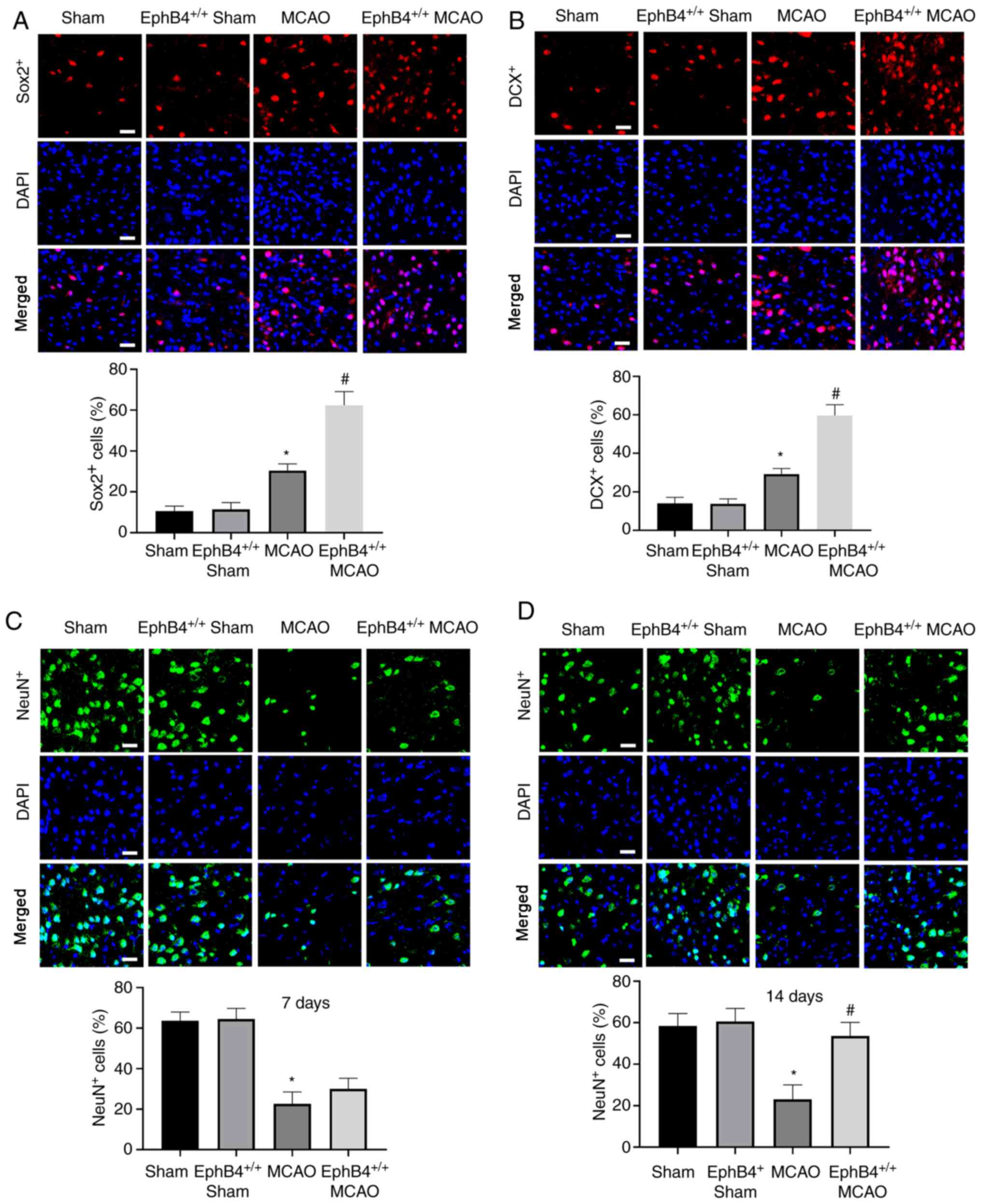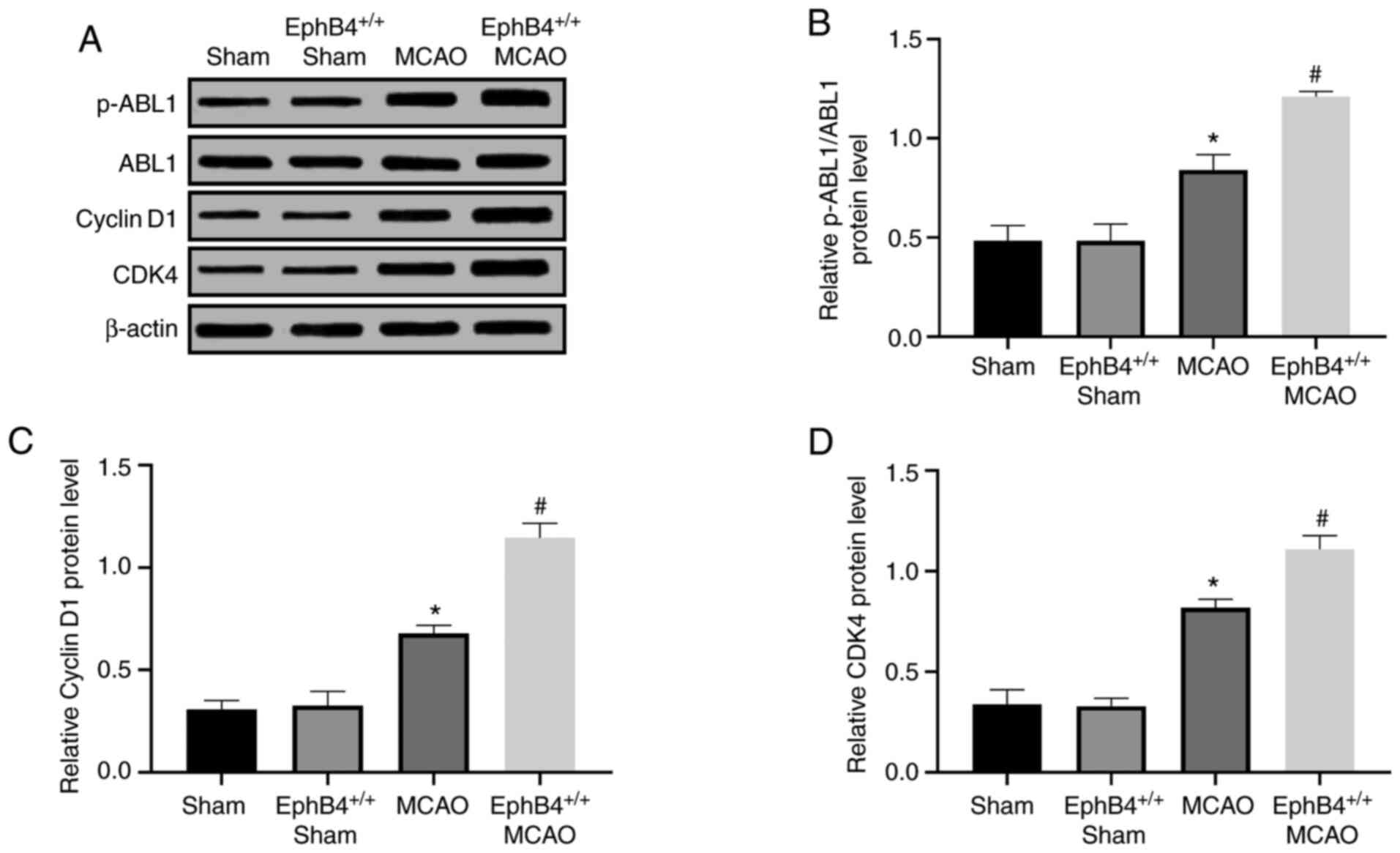|
1
|
Feigin VL, Forouzanfar MH, Krishnamurthi
R, Mensah GA, Connor M, Bennett DA, Moran AE, Sacco RL, Anderson L,
Truelsen T, et al: Global and regional burden of stroke during
1990–2010: Findings from the global burden of disease study 2010.
Lancet. 383:245–254. 2014. View Article : Google Scholar : PubMed/NCBI
|
|
2
|
Krishnamurthi RV, Ikeda T and Feigin VL:
Global, regional and country-specific burden of ischaemic stroke,
intracerebral haemorrhage and subarachnoid haemorrhage: A
systematic analysis of the global burden of disease study 2017.
Neuroepidemiology. 54:171–179. 2020. View Article : Google Scholar : PubMed/NCBI
|
|
3
|
Pires Monteiro S, Voogd E, Muzzi L, De
Vecchis G, Mossink B, Levers M, Hassink G, Van Putten M, Le Feber
J, Hofmeijer J and Frega M: Neuroprotective effect of hypoxic
preconditioning and neuronal activation in a in vitro human model
of the ischemic penumbra. J Neural Eng. 18:0360162021. View Article : Google Scholar : PubMed/NCBI
|
|
4
|
Doetsch F, Caillé I, Lim DA,
Garcia-Verdugo JM and Alvarez-Buylla A: Subventricular zone
astrocytes are neural stem cells in the adult mammalian brain.
Cell. 97:703–716. 1999. View Article : Google Scholar : PubMed/NCBI
|
|
5
|
Bond AM, Ming GL and Song H: Adult
mammalian neural stem cells and neurogenesis: Five decades later.
Cell Stem Cell. 17:385–395. 2015. View Article : Google Scholar : PubMed/NCBI
|
|
6
|
Yan YP, Sailor KA, Lang BT, Park SW,
Vemuganti R and Dempsey RJ: Monocyte chemoattractant protein-1
plays a critical role in neuroblast migration after focal cerebral
ischemia. J Cereb Blood Flow Metab. 27:1213–1224. 2007. View Article : Google Scholar : PubMed/NCBI
|
|
7
|
Chen L, Qiu R, Li L, He D, Lv H, Wu X and
Gu N: The role of exogenous neural stem cells transplantation in
cerebral ischemic stroke. J Biomed Nanotechnol. 10:3219–3230. 2014.
View Article : Google Scholar : PubMed/NCBI
|
|
8
|
Yamashita T, Ninomiya M, Hernandez Acosta
P, García-Verdugo JM, Sunabori T, Sakaguchi M, Adachi K, Kojima T,
Hirota Y, Kawase T, et al: Subventricular zone-derived neuroblasts
migrate and differentiate into mature neurons in the post-stroke
adult striatum. J Neurosci. 26:6627–6636. 2006. View Article : Google Scholar : PubMed/NCBI
|
|
9
|
Kaneko N and Sawamoto K: Adult
neurogenesis and its alteration under pathological conditions.
Neurosci Res. 63:155–164. 2009. View Article : Google Scholar : PubMed/NCBI
|
|
10
|
Dong X, Gao J, Zhang CY, Hayworth C, Frank
M and Wang Z: Neutrophil membrane-derived nanovesicles alleviate
inflammation to protect mouse brain injury from ischemic stroke.
ACS Nano. 13:1272–1283. 2019.PubMed/NCBI
|
|
11
|
Yang S, Wang H, Yang Y, Wang R, Wang Y, Wu
C and Du G: Baicalein administered in the subacute phase
ameliorates ischemia-reperfusion-induced brain injury by reducing
neuroinflammation and neuronal damage. Biomed Pharmacother.
117:1091022019. View Article : Google Scholar : PubMed/NCBI
|
|
12
|
Retraction: Roles of Eph/ephrin
bidirectional signaling during injury and recovery of the central
nervous system. Neural Regen Res. 13:21402018. View Article : Google Scholar : PubMed/NCBI
|
|
13
|
Knöll B and Drescher U: Ephrin-As as
receptors in topographic projections. Trends Neurosci. 25:145–149.
2002. View Article : Google Scholar : PubMed/NCBI
|
|
14
|
del Valle K, Theus MH, Bethea JR, Liebl DJ
and Ricard J: Neural progenitors proliferation is inhibited by
EphB3 in the developing subventricular zone. Int J Dev Neurosci.
29:9–14. 2011. View Article : Google Scholar : PubMed/NCBI
|
|
15
|
Conover JC, Doetsch F, Garcia-Verdugo JM,
Gale NW, Yancopoulos GD and Alvarez-Buylla A: Disruption of
Eph/ephrin signaling affects migration and proliferation in the
adult subventricular zone. Nat Neurosci. 3:1091–1097. 2000.
View Article : Google Scholar : PubMed/NCBI
|
|
16
|
Noren NK, Foos G, Hauser CA and Pasquale
EB: The EphB4 receptor suppresses breast cancer cell tumorigenicity
through an Abl-Crk pathway. Nat Cell Biol. 8:815–825. 2006.
View Article : Google Scholar : PubMed/NCBI
|
|
17
|
Ferguson BD, Liu R, Rolle CE, Tan YH,
Krasnoperov V, Kanteti R, Tretiakova MS, Cervantes GM, Hasina R,
Hseu RD, et al: The EphB4 receptor tyrosine kinase promotes lung
cancer growth: A potential novel therapeutic target. PLoS One.
8:e676682013. View Article : Google Scholar : PubMed/NCBI
|
|
18
|
Liu T, Zeng X, Sun F, Hou H, Guan Y, Guo
D, Ai H, Wang W and Zhang G: EphB4 regulates self-renewal,
proliferation and neuronal differentiation of human embryonic
neural stem cells in vitro. Cell Physiol Biochem. 41:819–834. 2017.
View Article : Google Scholar : PubMed/NCBI
|
|
19
|
Chen ST, Hsu CY, Hogan EL, Maricq H and
Balentine JD: A model of focal ischemic stroke in the rat:
Reproducible extensive cortical infarction. Stroke. 17:738–743.
1986. View Article : Google Scholar : PubMed/NCBI
|
|
20
|
Livak KJ and Schmittgen TD: Analysis of
relative gene expression data using real-time quantitative PCR and
the 2(-Delta Delta C(T)) method. Methods. 25:402–408. 2001.
View Article : Google Scholar : PubMed/NCBI
|
|
21
|
Yao RQ, Zhang L, Wang W and Li L: Cornel
iridoid glycoside promotes neurogenesis and angiogenesis and
improves neurological function after focal cerebral ischemia in
rats. Brain Res Bull. 79:69–76. 2009. View Article : Google Scholar : PubMed/NCBI
|
|
22
|
López-Juárez A, Remaud S, Hassani Z,
Jolivet P, Pierre Simons J, Sontag T, Yoshikawa K, Price J,
Morvan-Dubois G and Demeneix BA: Thyroid hormone signaling acts as
a neurogenic switch by repressing Sox2 in the adult neural stem
cell niche. Cell Stem Cell. 10:531–543. 2012. View Article : Google Scholar : PubMed/NCBI
|
|
23
|
Moraga A, Pradillo JM, Garcia-Culebras A,
Palma-Tortosa S, Ballesteros I, Hernández-Jiménez M, Moro MA and
Lizasoain I: Aging increases microglial proliferation, delays cell
migration, and decreases cortical neurogenesis after focal cerebral
ischemia. J Neuroinflammation. 12:872015. View Article : Google Scholar : PubMed/NCBI
|
|
24
|
Marei HE, Shouman Z, Althani A, Afifi N, A
AE, Lashen S, Hasan A, Caceci T, Rizzi R, Cenciarelli C and
Casalbore P: Differentiation of human olfactory bulb-derived neural
stem cells toward oligodendrocyte. J Cell Physiol. 233:1321–1329.
2018. View Article : Google Scholar : PubMed/NCBI
|
|
25
|
Dayer AG, Cleaver KM, Abouantoun T and
Cameron HA: New GABAergic interneurons in the adult neocortex and
striatum are generated from different precursors. J Cell Biol.
168:415–427. 2005. View Article : Google Scholar : PubMed/NCBI
|
|
26
|
Carlson KN, Pavan-Guimaraes J, Verhagen
JC, Chlebeck P, Verhoven B, Jennings H, Najmabadi F, Liu Y,
Burlingham W, Capitini CM and Al-Adra D: IL-10 and TGF-β cytokines
decrease immune activation during normothermic ex vivo machine
perfusion of the rat liver. Liver Transpl. Jun 12–2021.(Epub ahead
of print). View Article : Google Scholar : PubMed/NCBI
|
|
27
|
Onwuekwe I and Ezeala-Adikaibe B: Ischemic
stroke and neuroprotection. Ann Med Health Sci Res. 2:186–190.
2012. View Article : Google Scholar : PubMed/NCBI
|
|
28
|
Delavaran H, Sjunnesson H, Arvidsson A,
Lindvall O, Norrving B, van Westen D, Kokaia Z and Lindgren A:
Proximity of brain infarcts to regions of endogenous neurogenesis
and involvement of striatum in ischaemic stroke. Eur J Neurol.
20:473–479. 2013. View Article : Google Scholar : PubMed/NCBI
|
|
29
|
Ohira K, Furuta T, Hioki H, Nakamura KC,
Kuramoto E, Tanaka Y, Funatsu N, Shimizu K, Oishi T, Hayashi M, et
al: Ischemia-induced neurogenesis of neocortical layer 1 progenitor
cells. Nat Neurosci. 13:173–179. 2010. View Article : Google Scholar : PubMed/NCBI
|
|
30
|
Wan X, Saban DV, Kim SN, Weng Y, Dammann
P, Keyvani K, Sure U and Zhu Y: PDCD10-deficiency promotes
malignant behaviors and tumor growth via triggering EphB4 kinase
activity in glioblastoma. Front Oncol. 10:13772020. View Article : Google Scholar : PubMed/NCBI
|
|
31
|
Tang Y, Lei Y, Huang S, Li Z and Chen X,
Luo H, Cheng C, Chen J, Zou X and Chen X: Pristimerin exacerbates
cellular injury in conditionally reprogrammed patient-derived lung
adenocarcinoma cells by aggravating mitochondrial impairment and
endoplasmic reticulum stress through EphB4/CDC42/N-WASP signaling.
Oxid Med Cell Longev. 2020:74098532020. View Article : Google Scholar : PubMed/NCBI
|
|
32
|
Bhatia S, Bukkapatnam S, Van Court B, Phan
A, Oweida A, Gadwa J, Mueller AC, Piper M, Darragh L, Nguyen D, et
al: The effects of ephrinB2 signaling on proliferation and invasion
in glioblastoma multiforme. Mol Carcinog. 59:1064–1075. 2020.
View Article : Google Scholar : PubMed/NCBI
|
|
33
|
Zhu M, Gong Z, Wu Q, Su Q, Yang T, Yu R,
Xu R and Zhang Y: Homoharringtonine suppresses tumor proliferation
and migration by regulating EphB4-mediated β-catenin loss in
hepatocellular carcinoma. Cell Death Dis. 11:6322020. View Article : Google Scholar : PubMed/NCBI
|
|
34
|
Kadife E, Ware TMB, Luwor RB, Chan STF,
Nurgali K and Senior PV: Effects of EphB4 receptor expression on
colorectal cancer cells, tumor growth, vascularization and
composition. Acta Oncol. 57:1043–1056. 2018. View Article : Google Scholar : PubMed/NCBI
|
|
35
|
Yoon Y, Voloudakis G, Doran N, Zhang E,
Dimovasili C, Chen L, Shao Z, Darmanis S, Tang C, Tang J, et al:
PS1 FAD mutants decrease ephrinB2-regulated angiogenic functions,
ischemia-induced brain neovascularization and neuronal survival.
Mol Psychiatry. Jun 15–2020.(Epub ahead of print). View Article : Google Scholar : PubMed/NCBI
|
|
36
|
Ghori A, Freimann FB, Nieminen-Kelhä M,
Kremenetskaia I, Gertz K, Endres M and Vajkoczy P: EphrinB2
activation enhances vascular repair mechanisms and reduces brain
swelling after mild cerebral ischemia. Arterioscler Thromb Vasc
Biol. 37:867–878. 2017. View Article : Google Scholar : PubMed/NCBI
|
|
37
|
Ashton RS, Conway A, Pangarkar C, Bergen
J, Lim KI, Shah P, Bissell M and Schaffer DV: Astrocytes regulate
adult hippocampal neurogenesis through ephrin-B signaling. Nat
Neurosci. 15:1399–1406. 2012. View Article : Google Scholar : PubMed/NCBI
|
|
38
|
Kempermann G, Gast D, Kronenberg G,
Yamaguchi M and Gage FH: Early determination and long-term
persistence of adult-generated new neurons in the hippocampus of
mice. Development. 130:391–399. 2003. View Article : Google Scholar : PubMed/NCBI
|
|
39
|
Schaefer BM, Wallich R, Schmolke K, Fink
W, Bechtel M, Reinartz J and Kramer MD: Immunohistochemical and
molecular characterization of cultured keratinocytes after
dispase-mediated detachment from the growth substratum. Exp
Dermatol. 9:58–64. 2000. View Article : Google Scholar : PubMed/NCBI
|
|
40
|
Namiki J, Suzuki S, Masuda T, Ishihama Y
and Okano H: Nestin protein is phosphorylated in adult neural
stem/progenitor cells and not endothelial progenitor cells. Stem
Cells Int. 2012:4301382012. View Article : Google Scholar : PubMed/NCBI
|
|
41
|
Ferri AL, Cavallaro M, Braida D, Di
Cristofano A, Canta A, Vezzani A, Ottolenghi S, Pandolfi PP, Sala
M, DeBiasi S and Nicolis SK: Sox2 deficiency causes
neurodegeneration and impaired neurogenesis in the adult mouse
brain. Development. 131:3805–3819. 2004. View Article : Google Scholar : PubMed/NCBI
|
|
42
|
Brown JP, Couillard-Després S, Cooper-Kuhn
CM, Winkler J, Aigner L and Kuhn HG: Transient expression of
doublecortin during adult neurogenesis. J Comp Neurol. 467:1–10.
2003. View Article : Google Scholar : PubMed/NCBI
|
|
43
|
Dachet F, Bagla S, Keren-Aviram G, Morton
A, Balan K, Saadat L, Valyi-Nagy T, Kupsky W, Song F, Dratz E and
Loeb JA: Predicting novel histopathological microlesions in human
epileptic brain through transcriptional clustering. Brain.
138:356–370. 2015. View Article : Google Scholar : PubMed/NCBI
|
|
44
|
Schlatterer SD, Suh HS, Conejero-Goldberg
C, Chen S, Acker CM, Lee SC and Davies P: Neuronal c-Abl activation
leads to induction of cell cycle and interferon signaling pathways.
J Neuroinflammation. 9:2082012. View Article : Google Scholar : PubMed/NCBI
|















